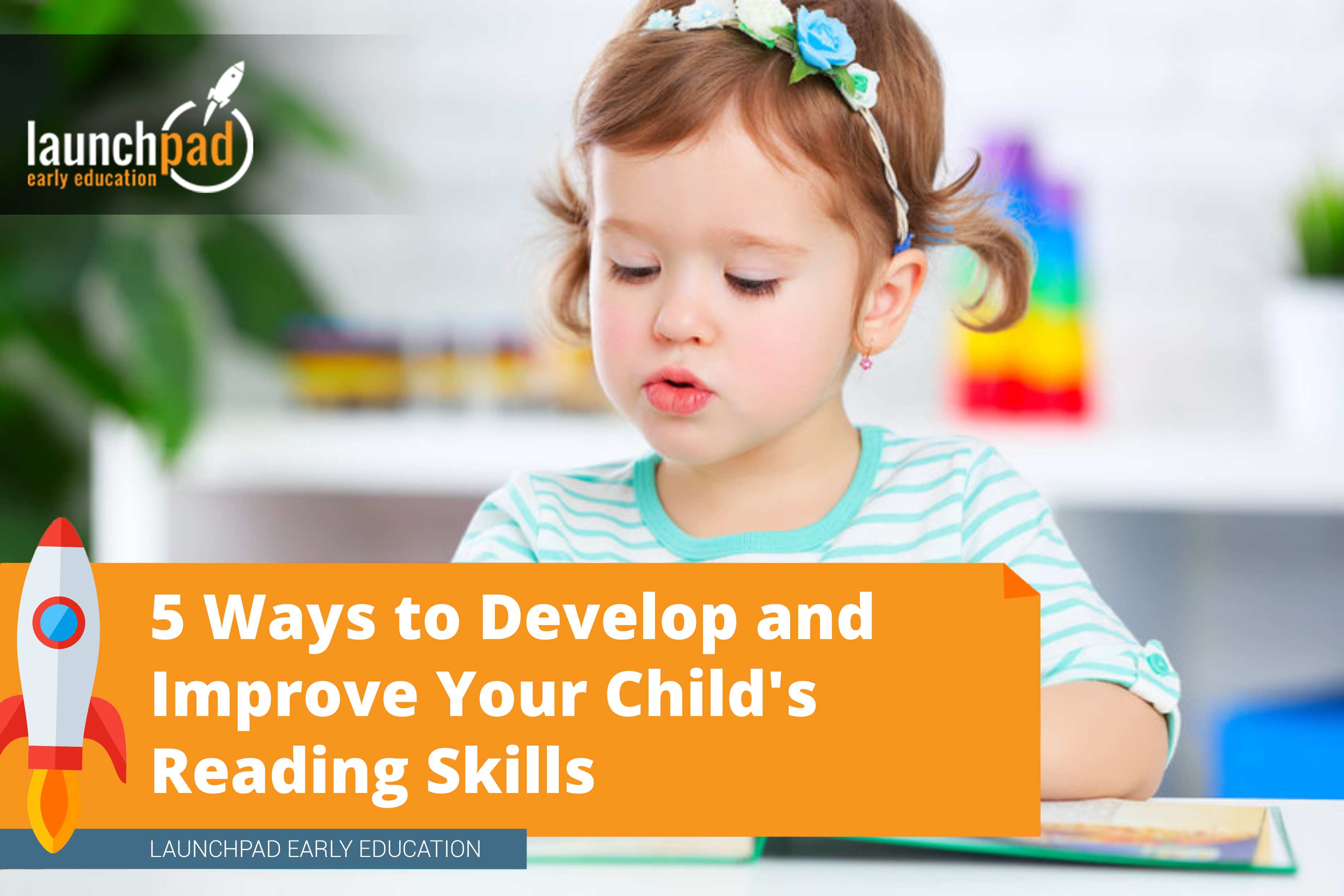Reading proficiency is critical when it comes to each child’s success in school, and beyond. According to research, children’s reading ability during the primary grades can predict how well they will do academically throughout their future school years. Reading is also a gateway to a new world of adventures and discovery, broadening a child’s knowledge and perspective. As a parent, you play a crucial role in helping your little one develop into a strong reader. Here are five ways to help you improve your child’s reading skills.
Read to your child daily
Reading together is one of the most effective parenting tools for developing strong readers. Reading with children can help improve their vocabulary and comprehension skills, which are critical components of reading.
It’s essential that parents carve out time for reading each day. Doing so provides invaluable opportunities to set aside screens, practice language development, and build word knowledge. When children are exposed to books and stories, it helps them develop a stronger understanding of how words work together to form meaning, extending narratives beyond the book through improvised story-play. Reading together also shows kids how fun books can be. Even if children are too young to read independently, they still benefit from being read to every day at home.
Read age-appropriate books with your child
Children’s books are grouped into levels according to reading difficulty and ability. It’s important that you and your child choose age-appropriate books in order to increase your little one’s confidence. When children have access to books at their reading level, it also encourages them to continue improving their reading skills.
It’s important that you are aware of your child’s current reading level. Find out which types of words your child can decode and understand when they’re read aloud. Ensure that your child is comfortable at one level before advancing to the next level of difficulty.
For kids in preschool and early elementary school, you can begin with board books, which usually contain fewer words and typically have one sentence per page. When children finish reading these short stories, it will give them a sense of accomplishment. Reading these types of books also familiarizes children with the appearance of text before they transition to longer picture books or chapter books down the road. For kids in the upper elementary school grades and up, you can choose lengthier novels that contain more complex vocabulary and advanced storytelling techniques, including plots that span multiple volumes, embedded narratives, and character development throughout an entire series.
Surround your child with a variety of reading material choices
Exposing children to a wide array of reading materials can expand their minds and the ways in which they think. This is why it’s essential to have books in your home that are both fun and educational. Ensure that you have a variety of children’s books that are easily accessible in different formats. These may include board books, picture books, early readers, easy readers, and chapter books.
It’s also important to store children’s books at their eye and height level in your home, such as inside reachable cabinets, baskets in their bedroom, or on low shelves. Be sure to remember to bring a few books along when you’re traveling with your child as well.
Don’t underestimate the impact of technology
Technology can provide unique opportunities when it comes to learning how to read. Make the most of children’s limited screen time each day by enriching their reading development. You can do this by using educational apps on your tablet, e-reader, or phone. There are plenty of entertaining games and quizzes available that can help your child with letter recognition, word building, and understanding how individual letters sound when read aloud.
Provide positive reinforcement for effort over natural ability
It’s important for children to feel that reading is something they can accomplish without being too overwhelmed. When kids feel anxious about learning how to read, they can become easily discouraged. You can help boost children’s self-esteem and confidence in reading by offering praise and recognition for their hard work, the amount of time they spend practicing, and how many new words they learn each day.
When children possess strong reading skills, it can help them grow academically, emotionally, and socially. Follow this guide to help you improve your child’s reading skills which in turn can lead to success in school and beyond!
At Launchpad Early Education, we offer faith-based child care and preschool education designed to give parents peace of mind and children tools to excel in life. Contact us to learn more!


